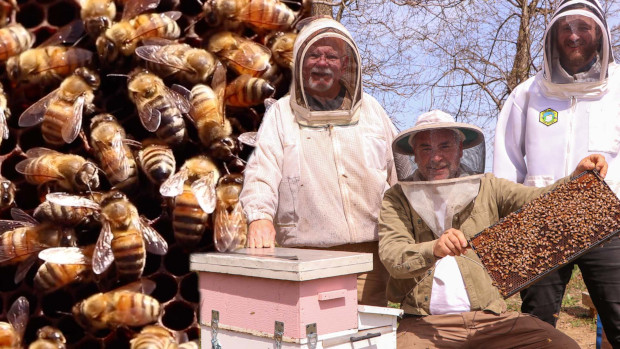BeezyBeekeepers | Find Local Beekeepers, Courses, and Associations
Joining a beekeeping club or association is one of the best ways to learn, connect, and grow as a beekeeper. Whether you’re a beginner looking for guidance or an experienced beekeeper wanting to network with others, we make it easy to find the right group for you.

Find Local Beekeepers, Courses, and Associations – Updated Monthly!
Want to connect with beekeepers near you, find beginner-friendly courses, or join a local beekeeping association?
Take our quick 60-second survey, and we’ll send you a free, updated list of the best beekeeping resources in your area—whether you’re just starting out or looking to expand your hive.
The Largest Beekeeping Directory on the Web
Beekeeping communities are buzzing around the world! Discover local beekeepers, courses, and associations in the largest beekeeper network online. 🐝
- 428
- Beekeepers Associations
Frequently asked questions
No, joining a beekeepers association is not mandatory, but it offers many valuable benefits.
Benefits of Joining an Association:
- Community & Support: Associations provide a welcoming community where beginners can learn from experienced beekeepers. Many offer beginner courses, mentorship programs, and access to shared apiaries.
- Regular Meetings & Networking: Beekeeping associations typically hold monthly meetings where members can discuss best practices, share experiences, and learn from guest speakers or experts. These gatherings provide ongoing education, problem-solving opportunities, and a chance to connect with other beekeepers in the community.
- Educational Classes & Workshops: Many beekeeping associations offer structured courses and hands-on workshops for beginners and experienced beekeepers alike. These classes often cover essential topics like hive management, swarm control, and honey extraction, helping members develop their skills throughout the beekeeping season.
- Exclusive Discounts: Some associations have partnerships with suppliers, offering members discounts on beekeeping equipment.
- Guidance on Regulations & Laws: Beekeeping associations are a great resource for understanding local beekeeping laws, zoning regulations, and best practices. Members can stay informed about legal requirements, such as hive placement, disease control, and honey sales, ensuring they comply with local and national regulations.
Our website provides a comprehensive directory of local beekeeping associations, organized by country and state. Whether you're a beginner looking for guidance or an experienced beekeeper seeking community support, you can easily find and connect with associations near you. Browse our listings to discover beekeeping groups, educational resources, and local events in your area.
If you encounter a swarm of honey bees, it’s best to contact a beekeeper for safe removal. Swarming is a natural process where half of a bee colony leaves to form a new hive. While swarms are generally not aggressive unless threatened, they should be removed promptly to prevent them from settling in chimneys, walls, or other difficult-to-access locations.
Beekeepers can safely relocate swarms, but they typically charge a fee to cover the costs of transportation and rehoming the bees.
Important Note: Beekeepers do not remove wasps or bumblebees. Wasps help control garden pests, and bumblebee nests last only about six weeks and rarely cause problems. All these pollinators play an essential role in the environment.
If you encounter a bee swarm and need help removing it, contacting your local association is a great option. Many areas have beekeeping associations or wildlife groups that offer services or can direct you to professional beekeepers who specialize in swarm removal.
These experts often remove swarms safely, ensuring that the bees are relocated rather than killed. They can also provide advice on how to avoid future swarms if you're concerned about them returning.